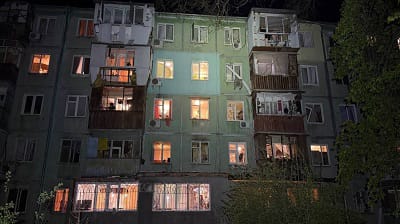Aivazovsky painting stolen from Ukraine turns up at auction in Russia
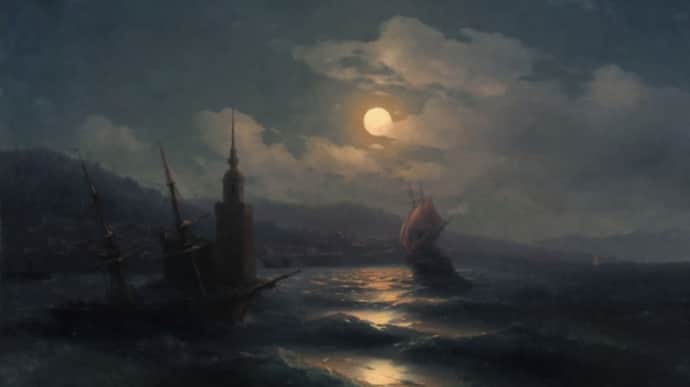
Moonlit Night, a painting by Ivan Aivazovsky, is being auctioned in Russia. The artwork was illegally transferred to the Simferopol Art Museum at the start of the Russian occupation of Crimea in 2014, alongside over fifty other paintings.
The Russians' plans to auction off Aivazovsky's painting were revealed by Gyunduz Mamedov, former Deputy Prosecutor General of Ukraine and Prosecutor of the Autonomous Republic of Crimea, on Twitter (X).
Mamedov recalled that 52 paintings that had been moved to occupied Crimea were added to Interpol’s Stolen Works of Art database at the request of the Crimean Prosecutor's Office in 2017.
"Thus, Russia is openly disregarding international law, as according to the 1970 UNESCO Convention, the export of cultural property and transfer of ownership is prohibited," Mamedov emphasised.
The Russian media have reported that Moonlit Night will be the star lot in the auction, which is to take place at the Moscow Auction House on 18 February. They note that the painting has been valued at RUB 100 million (about US$1.09 million) prior to sale.
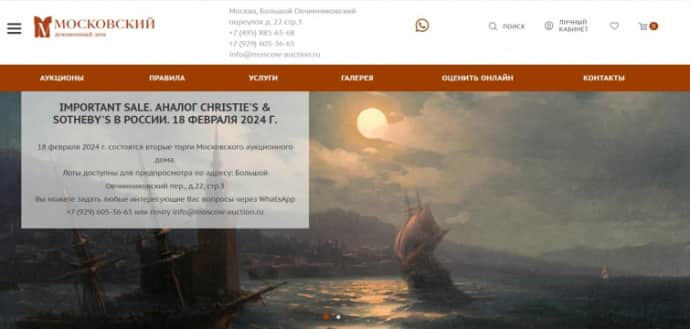
In addition to Aivazovsky's work, 123 works by artists from the 18th to 20th centuries will be offered for sale. They include six works by Ukrainian painter Illia Riepin (better known by the Russian spelling of his name, Ilya Repin) as well as works by Isaac Levitan, Vasily Vereshchagin, Nikolai Roerich, and others.
According to Russian media reports, the auction will be held in the same manner as Christie's and Sotheby's (which have refused to auction Russian art), and the website will allow visitors to "fill in a form [to apply] to export works of art from Russia".
How Russia stole Moonlit Night
On 18 February 2014, the Simferopol Art Museum and the Mariupol Museum of Local Lore signed an agreement on the display of paintings as part of an exhibition entitled "Russian and Ukrainian Art of the 18th to early 20th centuries". That day, 52 paintings from the Ukrainian Museum Fund arrived in Mariupol from Crimea. Among them were Moonlit Night by Ivan Aivazovsky; The Road in the Forest by Ivan Shishkin; Evening Landscape by Alexei Savrasov; and The Marsh by Isaac Levitan.
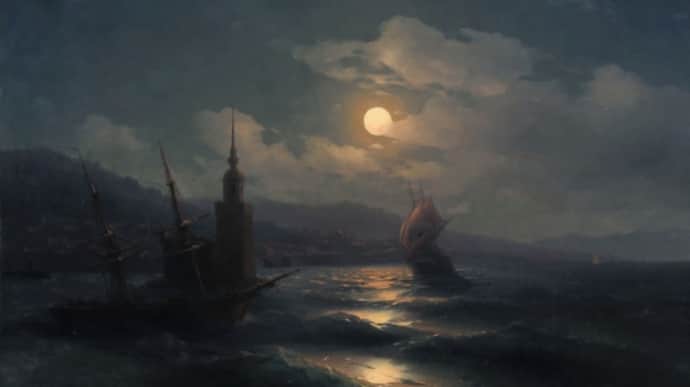
The exhibition in Mariupol was scheduled to run until 31 May 2014, but it was closed earlier because the management of the Simferopol Museum were demanding that the paintings be returned to now-occupied Crimea. On 19 March 2014, staff at the Mariupol Museum received a letter from the director of the Simferopol Art Museum.
In response, the then director of the Mariupol Museum of Local Lore, Olha Chaplynska, unilaterally terminated the agreement on the exhibition of the Crimean paintings. On 20 March, Natalia Kuronysheva, head of the reserves department at Mariupol’s Kuindzhi Art Museum, handed the 52 paintings over to an agent from the Simferopol Museum.
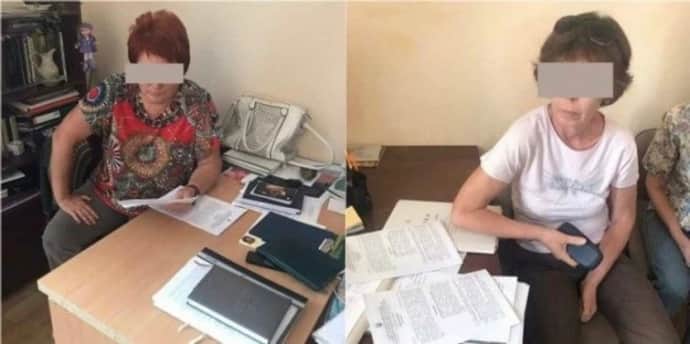
In August 2017, Radio Liberty reported, citing Russian media, that a group of retired servicemen from Crimea had stolen the paintings from the Mariupol Museum and transported them to the occupied peninsula.
On 17 August 2017, the Ukrainian Prosecutor's Office in Crimea announced that 50 paintings had been added to the Stolen Works of Art database via Interpol following their illegal transfer to the Simferopol Art Museum in March 2014.
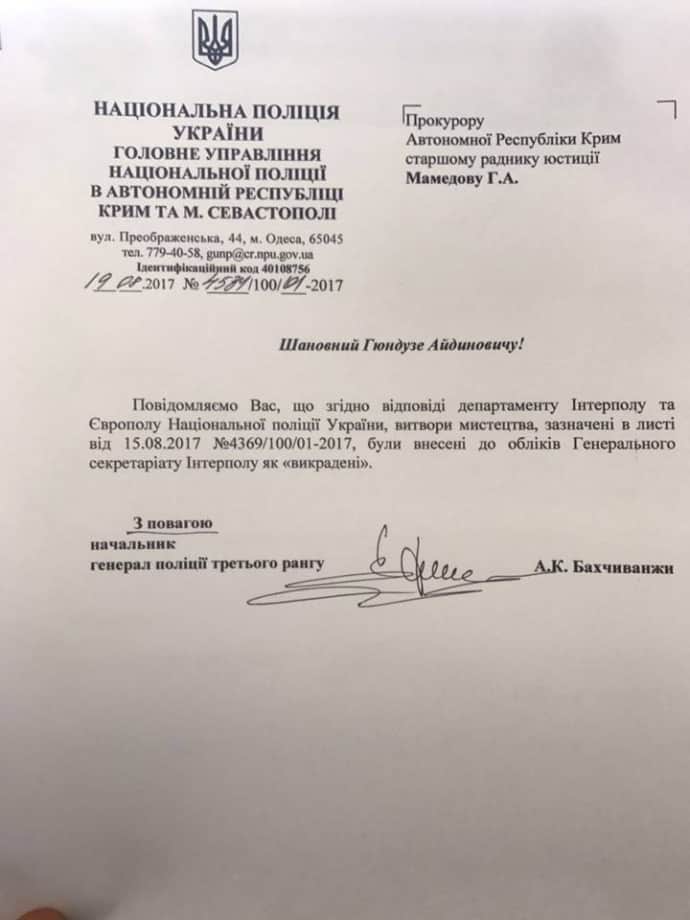
Chaplynska and Kuronysheva were served notices of suspicion in September 2017 and faced seven- and twelve-year prison sentences. However, in February 2018, the court sentenced both women to three years in prison and banned them from holding positions involving organisational, administrative or commercial duties for one year. Furthermore, the court exempted them from their prescribed punishment by applying the amnesty law.
Support UP or become our patron!
